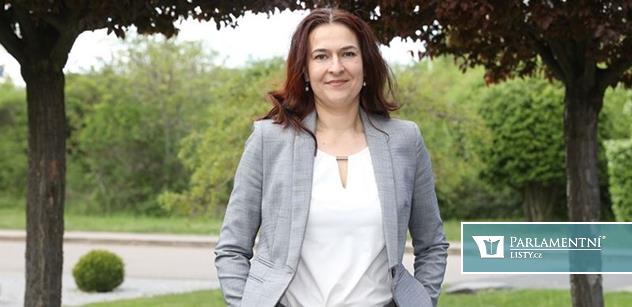Was last Sunday’s decision that Switzerland’s second-largest bank, Credit Suisse, which was founded in 1856, would be taken over by its larger rival UBS, as part of a state-backed rescue of the bank?
It is not for nothing that some banks are said to have “too big to fail” status. Some banks simply do not fail, because they are immediately taken over by other banks at the sign of problems. After all, we know it from us from IPB. So it wasn’t surprising at all. In principle, such banks can be identified quite easily. They are also called “systemic” banks and, for example, the CNB defines them in such a way that their balance sheet exceeds 10% of all assets of the entire banking sector.
The Fed accompanied its announcement of a rate hike of only 25 basis points by declaring that the US banking system is healthy and resilient. Were the failures of Silicon Valley Bank (SVB) and Signature something insignificant and completely exceptional, which does not say anything about the health of the US banking system?
Not at all. If you thought that the other day you haven’t heard much about banks and their collapses, and therefore the banking crisis is over, then many financiers think something quite different. I will mention, for example, the CEO of the Man Group investment fund Luke Ellis, who aired his views publicly at a Bloomberg news agency conference focused on the world of finance, which immediately spread the opinion of this important financial player to the world. And with that the peace ended again. Luke Ellis considers smaller and regional banks in the US and smaller banks in the UK to be at risk.
He did not talk about the banks in the Eurozone, but maybe only because he himself is embedded in the Anglo-Saxon world. However, I consider European banks – especially the smaller and regional ones – to be just as vulnerable, for two reasons. First, the movement of interest rates into negative values, their subsequent increase, as well as the rate of inflation, which is what causes and will cause the bank’s problems, are more extreme in the Eurozone than in the US. And secondly, it seems that the state authorities in Europe are less accepting and less understanding of the nature of the existing problems.
The failure of banking institutions, upheavals on the financial markets and ongoing uncertainty, now even around Deutsche Bank, increase the likelihood of a so-called Minsky moment, i.e. an economic collapse, according to many experts. Academician Hyman Minsky came up with this economic term a few years ago, who discussed in his publications the reasons that can lead to the collapse of the entire system. Is it still just a theoretical possibility, or is economic collapse really imminent? Wasn’t the situation from 2008 a bigger danger?
Questionnaire
Is it okay to threaten blockades of government buildings?
voted: 43241 people
It’s a similar situation to 2008 or 1929. You know, the thing is that central banks basically have a choice: Either fight against inflation, but an even tighter noose around the banks’ necks. Or help the banks, but then resignation to inflation. It is now more than clear what the central bankers have chosen. Their main message is that they seem to have decided to downplay the problems of the banks. For observers, they seem to believe that these were isolated events that will not happen again.
All the central banks of the world have already understood that inflation will remain elevated worldwide for a long time. All of them have chosen more or less to fight this inflation at the moment, regardless of the fact that banks are facing an outflow of deposits and that rising interest rates are further worsening the ability of borrowers to repay banks. How much this will hurt the banks will only be seen in the coming quarters. The time lag between an increase in interest rates and a real banking crisis is quite long.
The US Fed started raising interest rates from 1 percent as early as 2004 and drove them up to 5.25% in 2006. However, the subsequent global financial crisis caused by this did not come until 2008. Now the Fed has started raising interest rates from 0% in 2022 and already in 2023 we are at 5.25%. Thus, the speed of their increase was higher and the absolute value of their growth was higher than before the last financial crisis. And if this time it was as long delayed as the last time, it would not come until “until” 2025 or 2026. In other words, I repeat again, the main fun is still ahead.
Since taking up the position of Minister of Finance, Zbyněk Stanjura has been criticized for his lack of expertise. At the beginning of April, his new deputy will be Marek Mora, who served on the CNB’s banking board from 2017 to February this year, and for the past four years held the position of deputy governor of the central bank. What can this rather spicy transfer bring to the management of the department, even in view of the positions that the new minister’s colleague held at the CNB?
Of course, I have no idea how much Mark Mora’s expertise will ultimately help the running of the Treasury, given that it is a huge office; but the fact is that his expertise is particularly high in monetary and political issues. So, for me, it’s a good move and I’m almost sorry that he left the CNB, because it suited him. But of course, one swallow does not make a spring and one deputy does not make a Ministry of Finance…

- BPP
- the president of the Czech republic
The Czech Republic has the most active president it has ever had, and that is Petr Pavel, who has been in office for less than three weeks. He gives advice to all sides and advised the government of Petr Fiala that there will be a need more forceful towards the organizers of the demonstrations, because they constantly hide behind the freedom of speech, but often their expressions border on incitement to violence and destruction of the system. Is it time to show a firm hand to the subversives and give people peace of mind to work, to use pre-89 terminology?
Eighties terminology? So why does it remind me so much of today’s terminology…? The new president is not at all surprising with his communist past. I would seriously not expect a communist to worship freedom of speech – and freedom in general. But perhaps the President should read the Constitution again to clarify what his powers are. The President is not an advisory body to the government. The best way to provoke real violence is to prevent people from gathering and expressing themselves. This is when the papyka of dissatisfaction begins to pressurize and can really explode with the violence of a frustrated public.
From a similar document, there is also information that the rector of the University of Economics, Petr Dvořák, asked the chairman of the academic senate of the Faculty of Economics of the University of Economics to immediately convene a meeting at which the dismissal of the dean of the faculty, Miroslav Ševčík, should be discussed. You certainly follow the events at your alma mater, including student protests. How do you feel about him?
I don’t know at all what happened at that demonstration, at which Miroslav Ševčík was present, but something else is important. If there was no violation of the law, which would be in the hands of the police, the school or any other employer has no right to comment on the political views of its employee. The question is: was the law broken or not? And if he was, then let the police do it. If he wasn’t, let the employer keep quiet.
 |
ANATOMY OF FREEDOMMarkéta Šichtařová and Martin Vavruša
|
You can also support the editorial office of PL by purchasing a subscription. We don’t show ads to subscribers.
Are you a politician? Post whatever you want without editing. Register HERE.
Are you a reader and want to communicate with your representatives? Register HERE.
author: Jiří Hroník


